‘France was not ready’: The French church blamed for an early Covid outbreak has reopened
Early in the coronavirus pandemic a church in Mulhouse, France, was blamed for an outbreak amongst its congregation. A year on and it has now reopened, writes Rick Noack
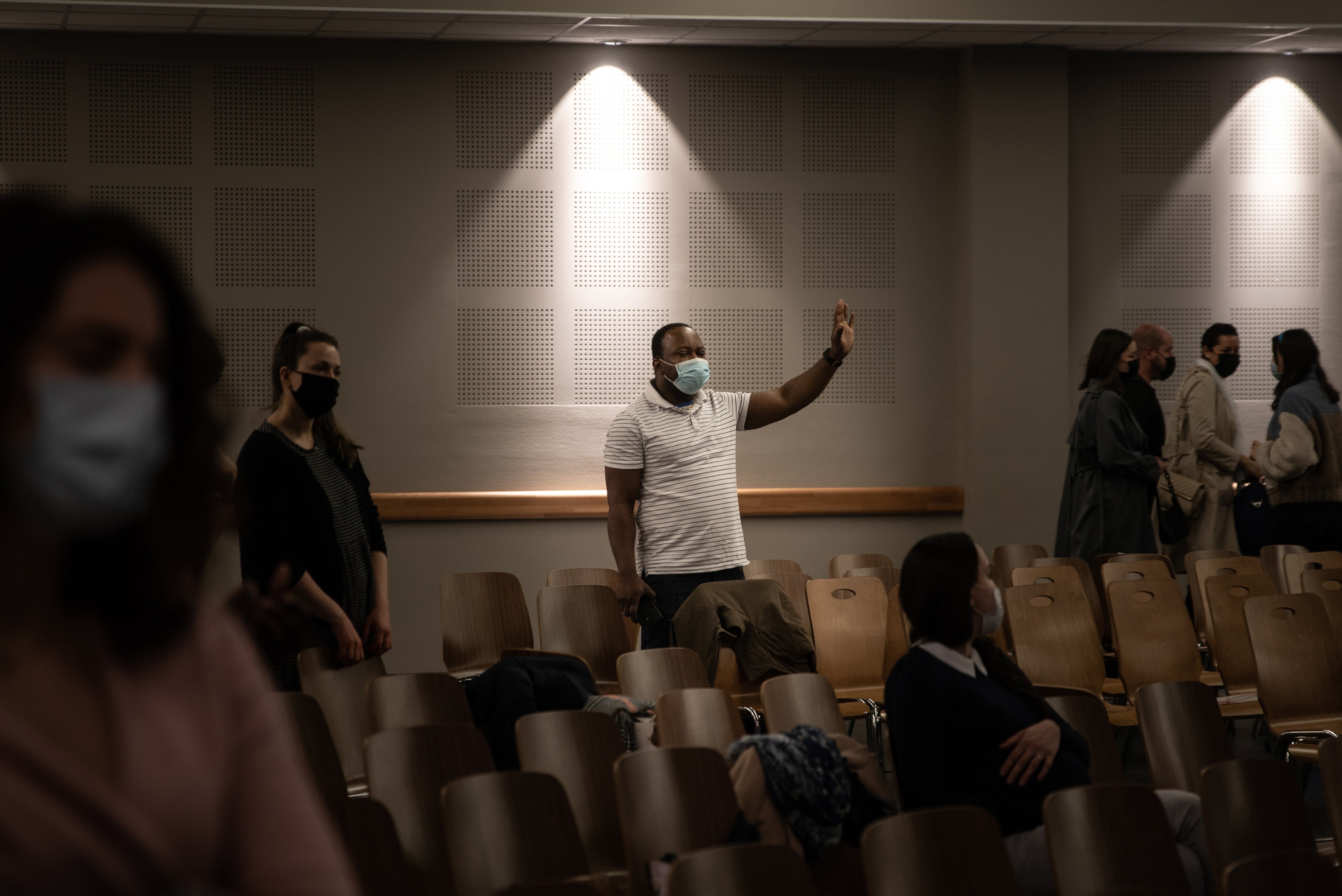
Your support helps us to tell the story
From reproductive rights to climate change to Big Tech, The Independent is on the ground when the story is developing. Whether it's investigating the financials of Elon Musk's pro-Trump PAC or producing our latest documentary, 'The A Word', which shines a light on the American women fighting for reproductive rights, we know how important it is to parse out the facts from the messaging.
At such a critical moment in US history, we need reporters on the ground. Your donation allows us to keep sending journalists to speak to both sides of the story.
The Independent is trusted by Americans across the entire political spectrum. And unlike many other quality news outlets, we choose not to lock Americans out of our reporting and analysis with paywalls. We believe quality journalism should be available to everyone, paid for by those who can afford it.
Your support makes all the difference.One year after an evangelical megachurch became the centre of one of France’s first known coronavirus clusters, 600 of its members gathered for an indoor worship service last Sunday, singing, praying and mourning dozens of friends they had lost.
As ventilation systems rumbled in the back of the 75,000-square-foot church, maskless singers and musicians onstage led the congregation in a refrain about the glories of God.
The audience wore masks. The first rows were filled with elderly people who had arrived with the help of canes and walkers. They remained seated as hundreds of church members behind them rose from their chairs, raising their arms and singing along.
But when pastor Samuel Peterschmitt took the stage, the mood quickly turned sombre. “Who, on February 21st, could have imagined what we were going to face?” he said.
On 21 February 2020, the Christian Open Door church celebrated the end of an annual week-long prayer meeting that a local health official would later call “a kind of atomic bomb”. It was one of Europe’s first mass-spreading events, linked to more than 2,500 cases in places as far away as Burkina Faso in west Africa and Guyana in South America. Health Minister Olivier Veran blamed the church in this eastern French town for seeding the country’s first wave, which resulted in 30,000 deaths – over three times as many as in neighbouring Germany.
“The tipping point was the evangelical gathering in Mulhouse,” Veran told France’s Journal du Dimanche newspaper in late March. “The epidemic spread across the country from the gathering.”
The church remains a divisive symbol for failures in France’s early response to the coronavirus pandemic, and it is now once again facing questions over the safety of its services, as more-highly transmissible variants are spreading in the region that could render current health measures less effective.
One week after the gathering, about 600 out of 2,000 regulars were missing in church
But researchers have come to a more nuanced conclusion about the Mulhouse church’s role last year. Although no one disputes that the February gathering accelerated the outbreak, the virus was probably circulating in the region, Alsace, weeks before the prayer meeting began and months before the French government banned events in March.
“France was not ready,” says Vincent Breton, who led a peer-reviewed study on the event and says the outbreak was already in motion before the church gathering. “Everybody was blind.”
The novel coronavirus was dominating headlines by mid-February, but France had only confirmed a handful of cases – none of them in Alsace. French officials were not signalling any urgency to enforce social distancing or cancel events, and French president Emmanuel Macron was pushing ahead with his normal schedule.
In the same week that Mulhouse’s Open Door church hosted its annual gathering, Macron visited a nearby police station. Days earlier, a home renovation and construction fair had drawn more than 20,000 visitors to the area.
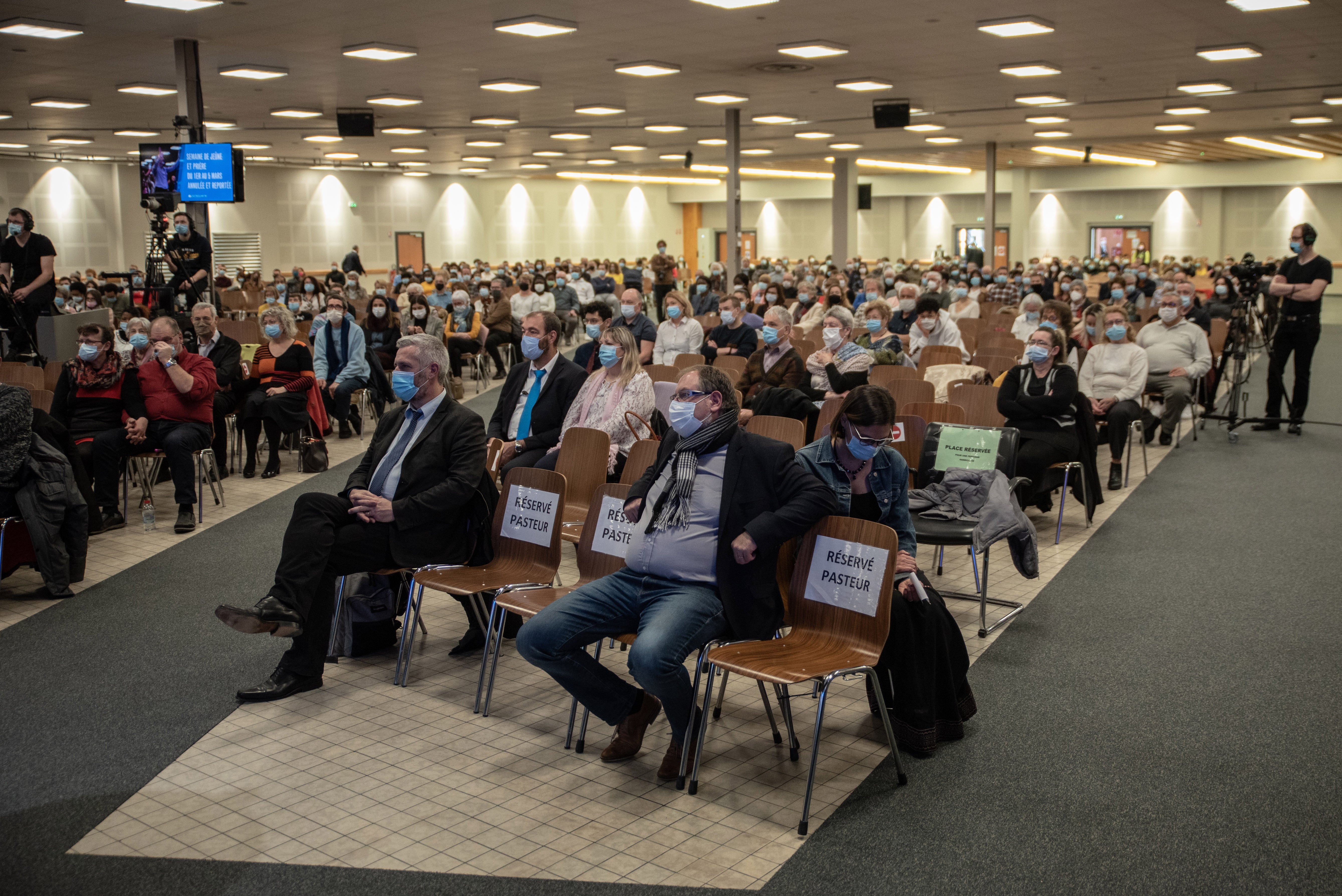
In Mulhouse, festivities at Open Door got underway as planned.
“The church was full of people – about 2,000 every day – with moments of prayer where we were all side by side, holding hands,” recalls Christian Gagnieux, 65, who joined the crowd that week. “There was no protection.”
One week after the gathering, about 600 out of 2,000 regulars were missing in church. “We had never seen something like this,” recalls Peterschmitt.
In Gagnieux’s family, 25 people fell sick, including his wife, who developed serious symptoms.
Soon, emergency hotline operators in the region were inundated with calls from churchgoers.
Among those admitted to the hospital was Peterschmitt, who narrowly survived. While receiving oxygen support, he stayed in touch with other church officials. “Every day I received texts, saying: Gerard is dead. Bernard is dead,” he recalls.
In all, about 100 members of the church were hospitalised and more than 30 died.
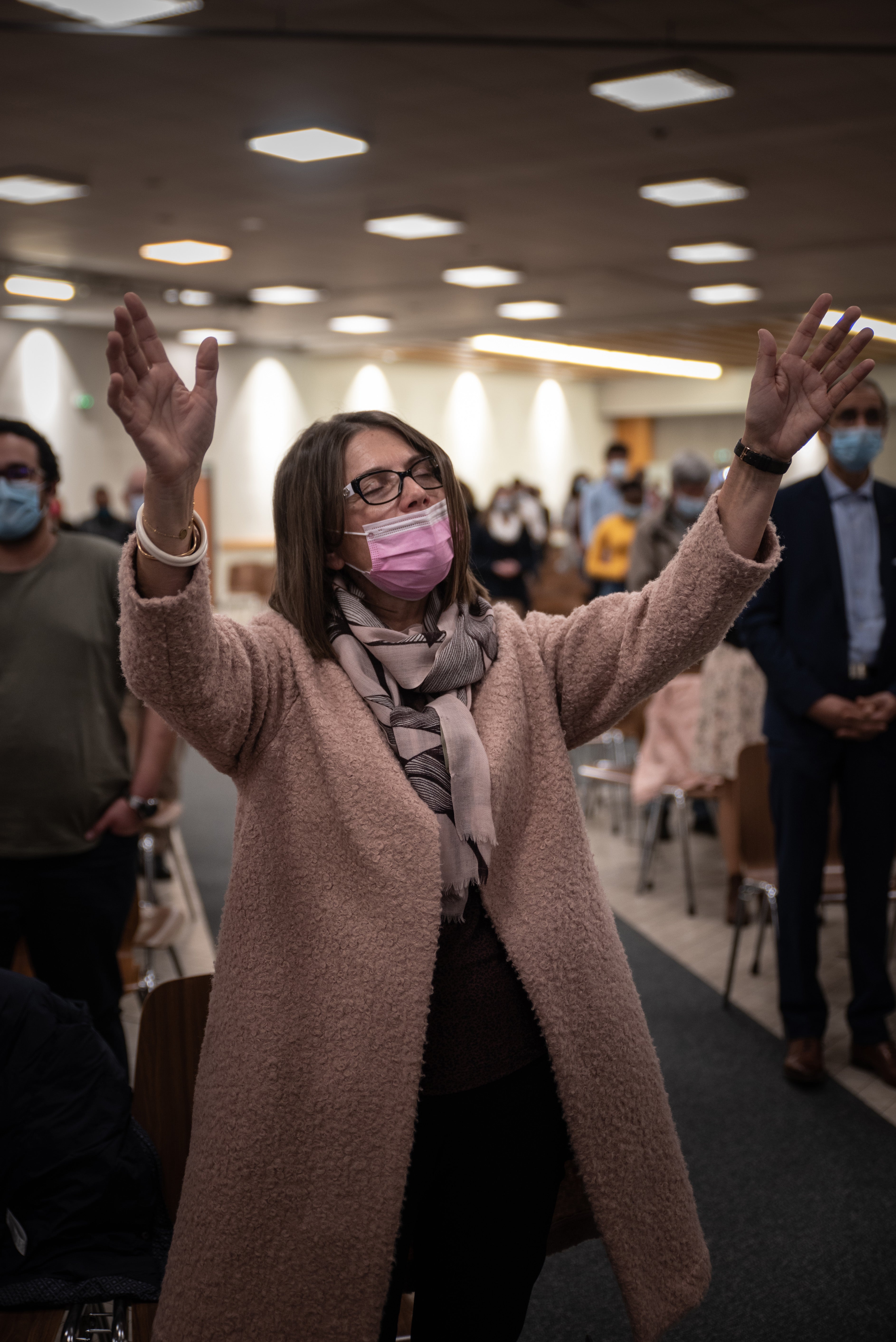
In an open letter, a group of evangelical leaders rallied behind the church, writing that the same “could have happened at any church, any gathering, any conference”.
But across France, accusations of recklessness mounted, and even within the Open Door community, some appeared to have regrets. “Apologies for having taken this crisis lightly. I’d like to ask for forgiveness,” one of its pastors, Thiebault Geyer, said in a live broadcast on March 17, appearing to hold back tears, as he blamed his “selfishness”.
One year on, the church community has embraced a different conclusion, arguing that it prevented worse from happening. “We were the victims,” says Peterschmitt.
Within days of the gathering, Peterschmitt’s son – a doctor – had sensed that the number of people getting sick was abnormal. About a week after the event, he alerted local authorities – triggering a quick chain of reactions in France, as well as in other countries, to which some participants had since returned.
“They played an important role in informing the authorities,” says Breton, the researcher, adding that the church should not “be blamed”.
The study’s conclusion has reinforced a feeling among the church community that it was a “scapegoat,” according to Peterschmitt. “They treated us as if we had created Covid,” he says.
“A lot of things were said that hurt us,” agrees Gagnieux, standing in the church parking lot. The area is separated from the neighbourhood by steel fences erected before the pandemic, with the potential for hate crimes in mind.
Peterschmitt says that religious communities – his own, but also megachurches in South Korea and the United States – were unfairly singled out as spreaders of the virus.
Religious discrimination linked to the pandemic has been a concern for rights activists. In some countries, authoritarian regimes have used the coronavirus as a pretext to put communities under increased surveillance. In others, rumours targeting minorities have sparked violent attacks.
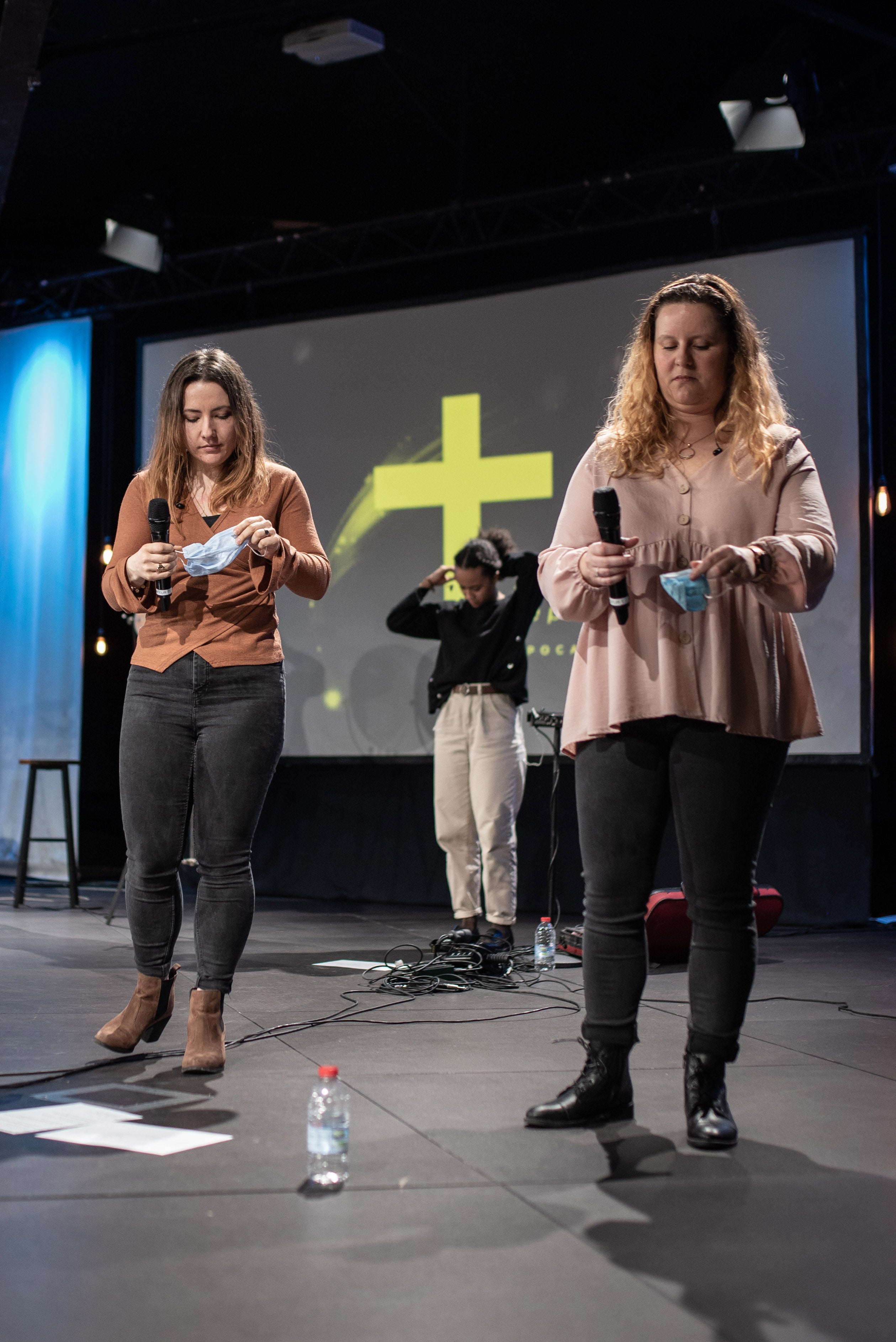
In France, the government banned regular church services during the two national lockdowns last year. When it lifted the second lockdown in late November, the government initially imposed a maximum number of 30 participants. But religious organisations challenged that limit – raising uncomfortable questions about discrimination in a nation that considers itself to be secular. The country’s highest court deemed the limit to be disproportionate to the risk and ordered a review.
Now, France is in a less restrictive period. But while a non-religious indoor concert with 600 people could still land organisers in prison, a concert during a religious service of the same size remains legal.
Last Sunday’s service at Open Door appeared to be in compliance with all the rules.
Although there is no upper limit on the number of attendees, the government mandates some degree of social distancing. So chairs were kept empty – and more than 4,000 people followed the live-stream on Facebook and YouTube.
Members attending in person received a miniature wine bottle per household, an alternative to the pre-pandemic practice of sharing one Communion cup of wine.
The multiple singers onstage stayed more than 10ft from the audience.
Whether those rules are sufficient remains the subject of debate.
French churches haven’t been linked to any coronavirus outbreaks since last spring, according to Breton.
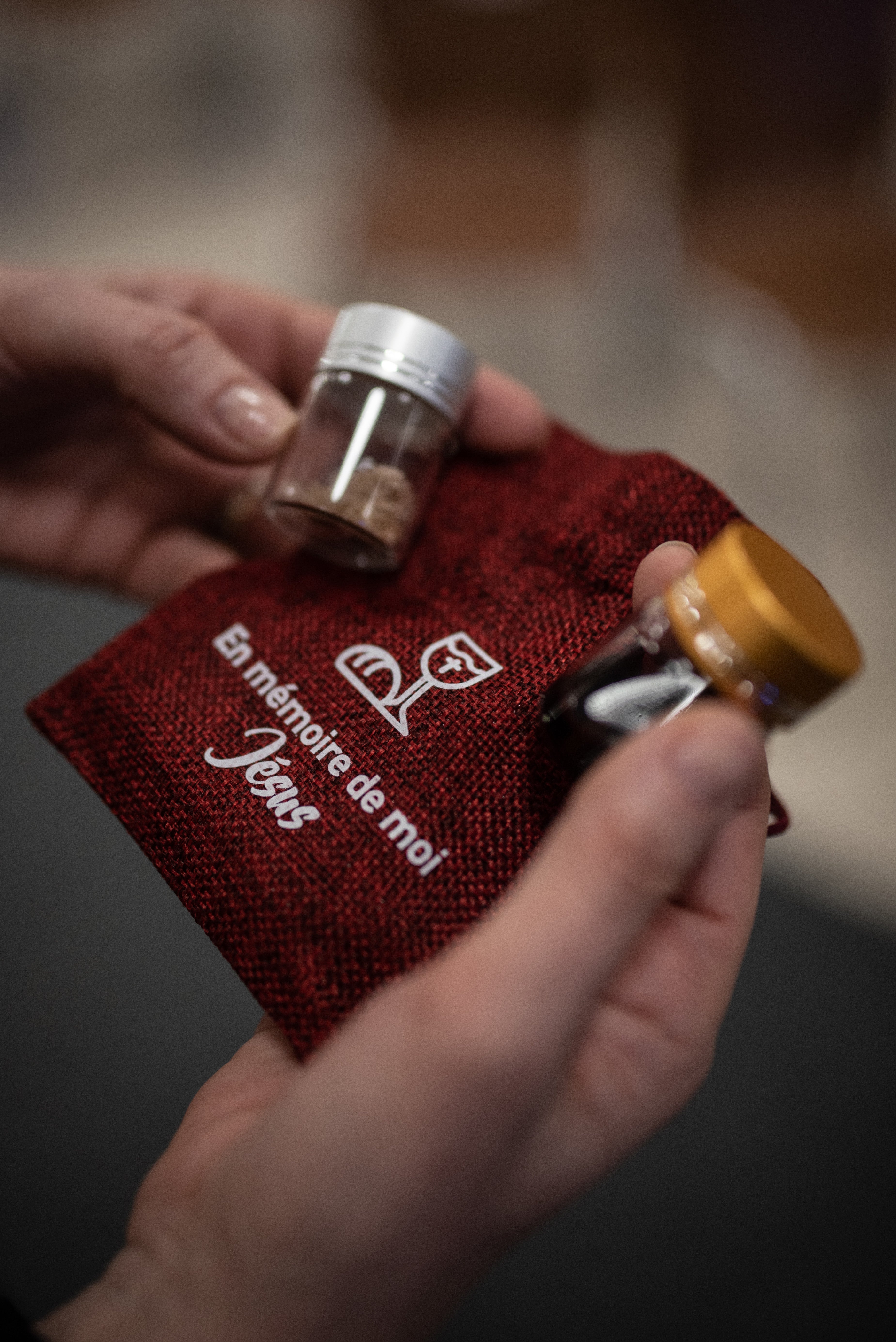
But concerns over megachurches and smaller places of worship as transmission hot spots are based on a growing body of scientific research, which has prompted new scrutiny of events such as the one held here on Sunday.
Several studies have independently found that singing poses serious risks in indoor areas. At least 30 people of a 41-member choir in Spain tested positive for the virus in September after a rehearsal in which social distancing was observed and masks were worn but windows were closed.
Adding to the concern in France are the more contagious variants of the virus – which weren’t a known issue when religious venues such as Mulhouse’s Open Door were allowed to resume their services.
France has seen a surge of the variant first identified in Britain, estimated to be 30 to 70 per cent more contagious and possibly more deadly. Eastern France has also been unsettled by the spread of the variant first detected in South Africa, which has shown less responsiveness to vaccines in preliminary research.
Overall coronavirus cases in France are ticking up, and the country is now reporting more new cases per capita than the United States.
But even as France appears to enter another dangerous phase of the pandemic, Peterschmitt says the lesson from last year’s outbreak should not be to ban indoor worship services.
“Today, people die because they no longer have a community,” he says. “We cannot hold hands, but we can see each other and have connections.”
© The Washington Post




Join our commenting forum
Join thought-provoking conversations, follow other Independent readers and see their replies
Comments